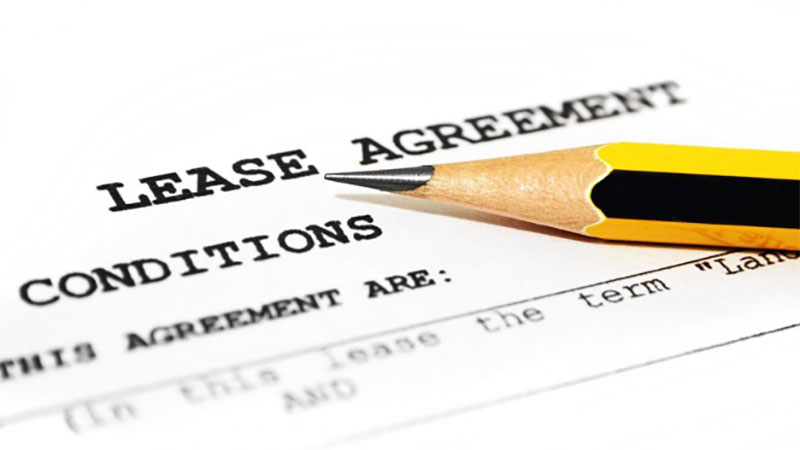Are you a landlord who has had the experience of having a tenant break their lease? You may feel overwhelmed and frustrated, but don’t despair – options are available to recoup your losses.
In this blog post, we’ll take you through what to do if your tenant breaks the lease, helping you understand the legal process and advising you on how to ensure it doesn't happen again. Read on for our top tips on protecting yourself as a landlord if one of your tenants chooses not to honor an agreement.
The Importance Of The Rental Lease
A rental lease is a very important document that serves as the binding agreement between landlord and tenant. It outlines the rights, obligations, and responsibilities of both parties, thus ensuring everyone understands their role in the tenancy agreement.
The lease also spells out what actions may result in consequences, such as eviction or financial penalties. Having an up-to-date rental lease is essential for any successful landlord-tenant relationship. Not only does it provide clear expectations from both parties, but it can also protect them from potential disputes.
The legal document sets out each party's rights and obligations under the agreement – including payment amounts, notice requirements, quiet enjoyment provisions, pet policies, maintenance responsibilities, etc. This helps ensure the landlord and tenant know their responsibilities and obligations in the agreement.
The rental lease is also the primary document used if a tenant breaks the lease. It outlines any termination clauses and penalties that may be applicable, as well as details on how to legally end the tenancy. With an up-to-date rental lease, landlords can protect themselves from costly disputes or legal action by tenants who break the lease. In addition to providing clear expectations and outlining rights and obligations, keeping a copy of the lease for your records is important so you have proof in case of any conflicts or disputes that might arise.
Include language for cases where leaving is unavoidable
In some cases, leaving the property may be unavoidable for a tenant. For example, if they lose their job or suffer financial hardship and cannot pay rent. In such cases, landlords must understand that there are still steps they can take to protect their interests and ensure that the tenant is held responsible for any breach of the lease agreement.
Communication is key When dealing with tenants who have not fulfilled their obligations under the rental agreement. Firstly, landlords should reach out after learning about the situation as soon as possible to start discussions on resolving it amicably. Ensuring all parties understand their rights and responsibilities in this situation is important.
If a tenant has vacated the property and has not fulfilled their obligations, the landlord can take legal action to recover any unpaid rent or damages. Depending on the local laws, this may include filing a civil claim against the tenant for breach of contract. In some cases, landlords may also be entitled to pursue compensation for lost rental income as well as other costs associated with the tenancy which have been incurred due to the tenant's breach of the lease agreement.
Understand the reasons for breaking a lease
Landlords should also be aware of the potential reasons a tenant might break their lease, as these can vary from state to state. Common causes of tenants breaking a lease include:
Loss of employment or job relocation
If a tenant's job is lost or relocated, they may not be able to fulfill the obligations of their rental agreement. In these cases, landlords should understand that it will be difficult for their tenants to stay in the property and maintain their rent payments. Landlords should also realize they may have some legal rights if they pursue the tenant for any unpaid rent or damages caused by breaking the lease agreement.
Unforeseen financial hardship
Tenants who fall into financial hardship due to unexpected circumstances such as illness or job loss can often be unable to honor their rental agreement commitments. Again, landlords should consider whether legal action is necessary and appropriate given the facts of each situation.
Repair issues
If a landlord fails to make necessary repairs or keep the property in acceptable condition, this can be grounds for tenants to break their lease. Landlords must know their legal obligations and responsibilities regarding maintenance and repair issues and ensure they meet these requirements.
Discrimination
Under federal law, a tenant cannot be discriminated against based on certain protected characteristics such as race, color, religion, national origin, sex, age or disability status. If landlords are found guilty of discrimination against tenants, this can be used to justify breaking the lease agreement.
Domestic violence
Tenants who experience domestic violence may have grounds to break their rental agreement due to safety concerns if local laws provide for this.
Unsafe living conditions
If a property is deemed unsafe or unhealthy due to inadequate maintenance, faulty wiring, mold or other hazards, a tenant may have grounds to break the lease without penalty.
Breach of contract
If either party does not abide by the rental agreement terms, they can be held liable for breach of contract and may face legal action from the other party.
Include terms for breaking a lease

When a tenant breaks their lease, it can be difficult for landlords to recoup any damages or unpaid rent. Sometimes, state laws may require the tenant to pay fees for breaking the lease agreement. The rental agreement should outline these terms so that both parties know what would happen if a tenant chooses to break the lease.
Ultimately, understanding local landlord-tenant law and including specific language in your rental agreement can help protect you as a landlord and reduce the risk of costly disputes or legal action related to tenants who break their lease.
FAQs
Q: When Is A Lease Considered Broken?
A lease is considered broken when one of the parties fails to fulfill their obligations under the agreement. This can include not paying rent, damaging the property, or subleasing without permission. Landlords need to know their local laws and be aware of any legal requirements that must be met should a tenant break the lease.
Q: How can I recoup losses due to a broken lease?
A: Your next step would be to assess how much money (if any) you are owed as compensation for lost rent and damage costs. You may look into any applicable state and local laws concerning landlord/tenant rights to ensure you follow the appropriate process. Sometimes, contacting a collections agency or small claims court may be useful if the tenant refuses to pay.
Q: How can I prevent this from happening again?
A: The best way to protect yourself as a landlord is by taking preventive measures before signing a lease with a new tenant. Ensure you do thorough background checks on potential tenants, including credit scores, criminal records, rental references, and proof of income. You should also have an airtight lease agreement that outlines all expectations for both parties and clearly outlines any penalties for breaching the agreement. Finally, keep an open line of communication with your tenant throughout their stay, answering questions and addressing any issues, so that you can respond quickly should a problem arise.
Conclusion
At the end of the day, if your tenant breaks their lease agreement, it is important to act quickly and decisively. With proper preparation and a clear understanding of the law, you can ensure that you can recoup any losses due to a broken lease and protect yourself from similar issues in the future.








